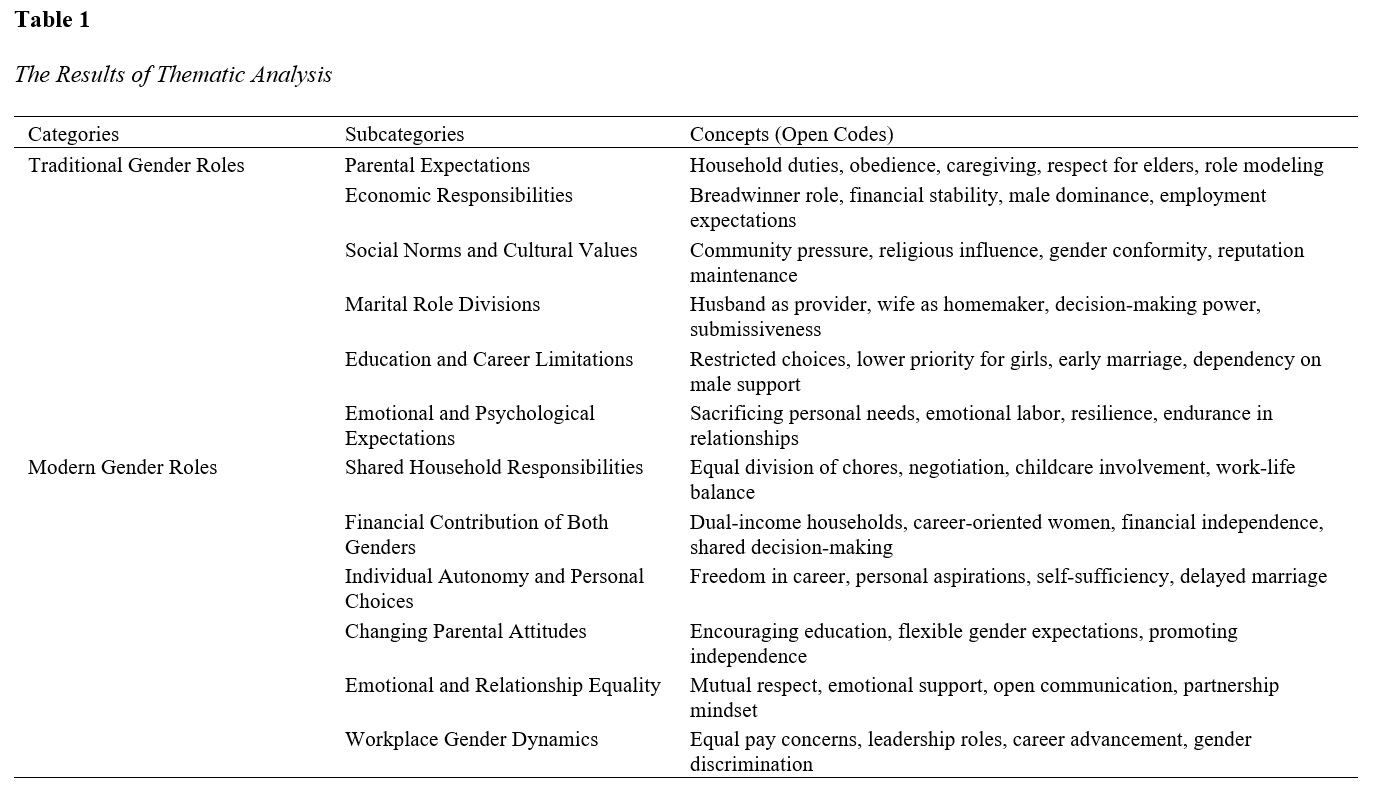Investigating the Contextual Factors Affecting Gender Roles in Traditional and Modern Families
Keywords:
Gender roles, traditional families, modern families, gender expectations, family dynamics, contextual factors, qualitative researchAbstract
Objective: This study examines the contextual factors that influence gender roles in traditional and modern families.
Methods and Materials: A qualitative research design was employed, using semi-structured interviews with 24 participants recruited through online platforms. The study utilized a theoretical saturation approach to determine the sample size, ensuring a comprehensive understanding of gender role dynamics. Data were analyzed using NVivo software, applying thematic analysis to identify key themes and subthemes related to traditional and modern gender roles as well as the contextual factors influencing their evolution.
Findings: The analysis revealed three major themes: traditional gender roles, modern gender roles, and contextual factors shaping gender expectations. Traditional gender roles remained dominant in many families, with men expected to be primary financial providers and women responsible for caregiving and household duties. However, modern families exhibited greater flexibility, with shared financial responsibilities, equal household contributions, and evolving parental attitudes towards gender roles. Contextual factors such as media representations, legal frameworks, socioeconomic status, education, and digital influence played a critical role in shaping gender norms. While traditional values persisted in some households, external influences were found to drive significant shifts towards gender equality in modern family structures.
Conclusion: The findings suggest that while traditional gender roles continue to shape family structures, increasing economic participation, educational attainment, and digital exposure are redefining gender expectations. The interplay between cultural traditions and evolving social norms highlights the complexity of gender role negotiation in contemporary families. Understanding these dynamics can contribute to the development of policies and practices that support gender equity in both traditional and modern households.
Downloads

Downloads
Additional Files
Published
Submitted
Revised
Accepted
Issue
Section
License
Copyright (c) 2025 Yang Zhang (Author); Yinghao Pan (Corresponding Author); Jiaowei Gong (Author)

This work is licensed under a Creative Commons Attribution-NonCommercial 4.0 International License.






